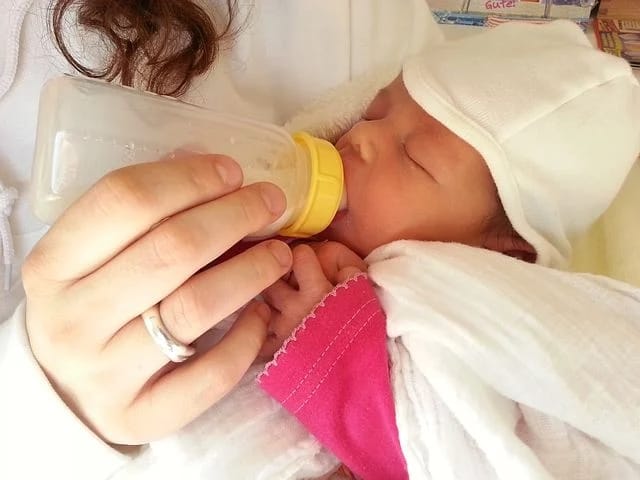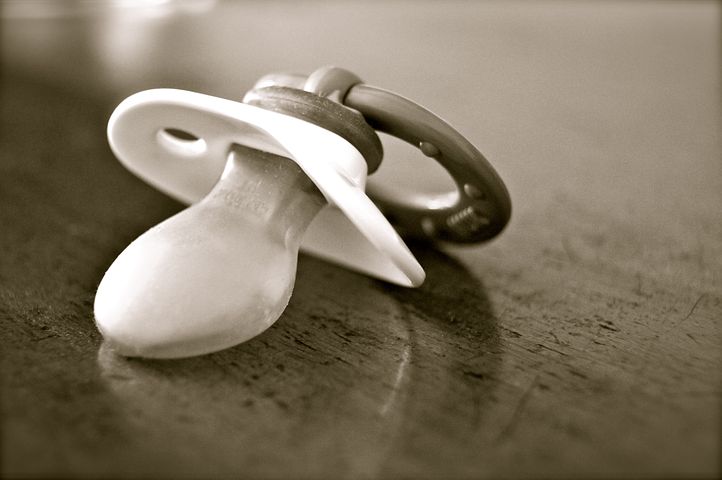How Much Should a 2 Month Old Sleep: Ultimate Guide
Most newborn parents struggle with the question of how much should a 2-month-old sleep. This is obvious considering that your infant is in their first phase of significant developments at this age, both mentally and physically.
And after two beautiful months of understanding and cramming your child’s sleeping schedule, falling out of that rhythm will concern you. For most parents, this becomes too hard to bear to the point of seeking medical or professional help.
But don’t worry because this guide is here to help if your two months old have fallen off rhythm with their sleeping schedule. So, if you were wondering how much should a 2-month-old sleep, then this is the ultimate guide to find your answers.
How Much Should a 2-Month Old Sleep?
As you may know, not every baby is the same. And the amount of time a 2-month old baby should sleep will vary from one baby to the other.
However, there is always a standard for anything, it seems, and the amount of time your 2-month old should sleep also has a standard number. According to multiple and viable researches, the amount of time a 2-month old should sleep is about 14-17 hours in 24 hours.
The amount of time estimated above also includes four to six naps during the day, a standard for babies around this age. But again, this number is different from one child to another, depending on several factors.
Remember, this is the age where your baby starts to slightly understand some things, including the difference between daytime naps and nighttime sleep. So, your baby’s day-night confusion starts subsiding by the time they are two months old.
Hence, the baby may start exhibiting an irregular pattern of staying awake for about 60 to 90 minutes during the day. This is then followed by 30 minutes to 2 hours of naptime during the day and stretched hours of sleep at night.
Lastly, you may notice them getting up because of hunger at night. Understand that there’s nothing wrong if it happens, and it’s entirely normal for them to do this at two months old.

2-Month Old Sleep Schedule
Like with anything else, the sleep schedule for 2-month old babies varies in mostly all of them. There isn’t a standard time here, but only a typical one based on the child’s behaviors and personality.
It’s hard to predict their schedule and its consistency as well. Therefore, the following plan is the most typical one you’ll find with most two-month-old babies.
• 7:00 a.m. – Baby wakes up
• 7:00-8:30 a.m. – An hour and thirty minutes of feeding and playtime
• 8:30 a.m. – First nap of the day
• 8:30-9:30 a.m. – About a full hour of nap time
• 9:30 a.m. – Awake again
• 9:30-11:00 a.m. – Another hour and thirty minutes of playtime and feeding
• 11:00 a.m. – This is mostly the time for the second nap of the day
• 11:00 a.m.-12:00 p.m. – The second nap lasts for about a full hour here
• 12:00 p.m. – Your baby then wakes up, and it’s feeding and playing time again
• 12:00 p.m.-1:30 p.m. – This is the third time your baby stays up for about an hour and a half
• 1:30 p.m. – Third nap of the day takes place around this time, and it lasts for about an hour and a half as well
• 3:00 p.m. – Your baby is awake again for around one and a half hours once more
• 4:30 p.m. – At this time, your baby is one nap shy of their final rest of the day before heading to sleep. This nap lasts for about one hour only
• 5:30 p.m. – Your baby is awake again at this time and stays up for another hour and thirty minutes
• 7:00 p.m. – This time your baby’s fifth nap of the day and probably the last one too, which lasts for one hour
• 8:00 p.m. – Awake time again
• 9:00 p.m. – Initiation of the bedtime routine
• 9:30 p.m. – It’s bedtime for your baby
Note that the above detailed 2-month old sleep schedule takes an assumption that your 2-month old baby stays up for 90 minutes long. Similarly, the sample also assumes that your baby takes naps equivalent to one hour long during the day.
However, this sample may differ from other 2-month old baby sleep schedule samples due to several reasons. And like mentioned earlier, your baby may take naps as short as 30 minutes long or extend them to 2 hours long.

2-Month-Old Baby Feeding and Sleeping Schedule
Now that the question of how much should a 2-month-old sleep question is mostly answered let’s get more info concerning the topic. Remember that this is your baby’s first phase of significant developments, which means it would be best to understand and integrate all their growth steps.
As we advance, most babies start to consolidate feedings when they reach two months old. This is especially the case if your baby is on formula.
At two months old, your baby’s stomach increases in capacity, which means that he/she may start taking longer stretches between feeding times. But breastfeeding mothers should continue to breastfeed their babies within an hour’s interval during the day.
Additionally, your two-month-old will still require some breastfeeding time during the night. The good news is that this process also maintains your milk supply.
And because of your baby’s stomach capacity increasing, they may start staying awake more frequently even after a full dose of breastfeeding. If this happens, introducing them to solid foods wouldn’t be a bad idea.
It would help them calm down and eventually get some sleep. Introducing them to solid foods might help with their sleeping problems, but it isn’t usually the go-to approach for a lasting solution.
Additionally, it isn’t that ideal to start introducing solid foods to your 2-month old baby. Breastfeeding and formula remain the best options at this age unless a healthcare professional suggests otherwise.
Below is a sample of 2-month-old feeding and sleeping schedule.
• 7:00 a.m. – Wake
• 7:00 a.m. – Feed
• 8:30 a.m. – Nap
• 9:00 a.m. – Wake and Feed
• 11:00 a.m. – Feed and Nap
• 1:00 a.m. – Wake and Feed
• 2:00 p.m. – Nap
• 2:30 p.m. – Wake and Feed
• 4:30 p.m. – Feed and Nap
• 6:30 p.m. – Feed
• 7:00 p.m. – Catnap
• 8:30 p.m. – Catnap
• 10:00 p.m. – Feed and Bedtime
After 10:00 p.m., almost all 2-month-old babies still need three or more night feedings before waking up in the morning. Note the above sample is a typical schedule for breastfeeding only babies.
2 Month Old Sleep Regression
Although not immensely, sleep regression can also contribute to how much should a 2-month-old sleep. Sleep regression is the period in which any baby suddenly stops following their usual nap or bedtime.
It’s caused by several factors, with the most common here being your child’s physical and mental development. Fortunately, sleep regression is only a temporary situation, and you can either wait it out or decide to take some action.
Whatever you choose, sleep regression won’t last forever regardless of your baby’s age. Below are some of the factors that cause sleep regression, leaving most parents wondering how much should a 2-month-old sleep.
• Growth Spurt – This increases the baby’s appetite levels, making them extra-hungry during sleep
• Teething Pain – Even though the first tooth in infants will be visible around six months old, teething starts as early as two months.
• New Milestones – As mentioned earlier, this is the age your baby experiences their first growth phase, which makes them excited about a lot to fall asleep.
• Illness – Sickness might also affect your baby’s sleep schedule and cause a regression.
But as explained earlier, sleep regression isn’t a permanent situation and usually lasts for about 2-4 weeks maximum. Waiting it out is usually the most recommended solution as it helps your baby discover the answer naturally.
But if an illness is causing the regression, tending to their health should be your priority. This ensures that they are kept safe from an unnatural sleep regression that might end up causing more problems in the future.
And if you are wondering how to detect a 2-month old sleep regression, the following signs are clear indications to watch out for:
• Frequent than usual night waking
• Falling asleep troubles at bedtime
• Increased crankiness or fussiness
• Sudden resistance to day-time naps
If any or all of the above signs are presented by your two-month-old, then you can easily understand that it’s asleep regression taking place. It’s not an easy process, and it’s one that has left many wondering how much should a 2-month-old sleep.
2 Month Old Baby Sleeping Tips
Getting your baby to sleep is a process that requires utmost considerations and knowledge. Additionally, you also need to understand that babies less than six months old don’t start exhibiting regular sleep cycles.
However, you can still get them up to par with the right steps for better and healthier sleeping habits. The following are some helpful 2-month old baby sleeping tips, and hopefully, they can help you stop struggling with how much should a 2-month-old sleep.
- Optimize Play Time
To better understand the difference between night and day, you need to play together during the day with your baby. Doing this reduces their day-night confusion, which positively contributes to the 2-month old sleep regression.
- Create a Sensible Bedtime Routine and Instill Consistency
Creating a bedtime routine for your baby is one thing, but enforcing its consistency ensures you communicate your baby’s actions. A sensible bedtime routine for your baby includes bathing them, putting on their pajamas, and listening to drowsy lullabies, among others.
Such actions will not only explain your desires to your baby, but they’ll also signal that it’s bedtime if you consistently apply them.
- Begin the Bedtime Routine Early
If your baby sleeps around 9:00 p.m., then starting their bedtime routine earlier than this ensures you set them up to par with what’s coming. You can begin preparing them for bed thirty minutes earlier for better results when their sleeping time comes.
- Put Your Baby to Bed When He or She is Drowsy
Most parents are tempted to rock their babies to sleep when they get drowsy. However, this habit is changeable, and the change can enhance your baby’s sleeping routine.
You can do this by putting your baby to bed as soon as they start getting drowsy but still awake. And when you do this often, your baby will begin to understand that they can rely on themselves to fall asleep.
- Ensure Nighttime Sleep Stimulation is on Point
Whenever feeding or changing your baby at night, ensure that you create a sleep enabling atmosphere so that they can always return to sleep afterward. You can do this by feeding and changing them quietly and in the dark.
- Wait It out When Your Baby wakes Up at Night
Although it might be tempting to rock your baby back to sleep after waking up in the middle of the night, it would be best to first wait before responding. If you choose to stay, your baby may fall back to sleep without needing your help.
But if the fuss continues, you can check up on them while still maintaining a sleep time atmosphere. Try as much as possible to avoid turning on the light or playing with them.
This is because the most apparent reasons your baby wakes up are hunger or the need for a diaper change. Such are things you sub-consciously understand doing and don’t require the lights to help you.
But if none of those are easing her up, it might be a health issue that needs no hesitation to attend. Otherwise, waiting before you respond to your baby’s call in the middle of the night teaches them a lot in getting back to sleep by themselves.
In conclusion to the question of how much should a 2-month-old sleep, we hope that you’ve learned more than enough to get you through this time. It might be rough, especially with the sleep regression process but nothing impossible to handle.









